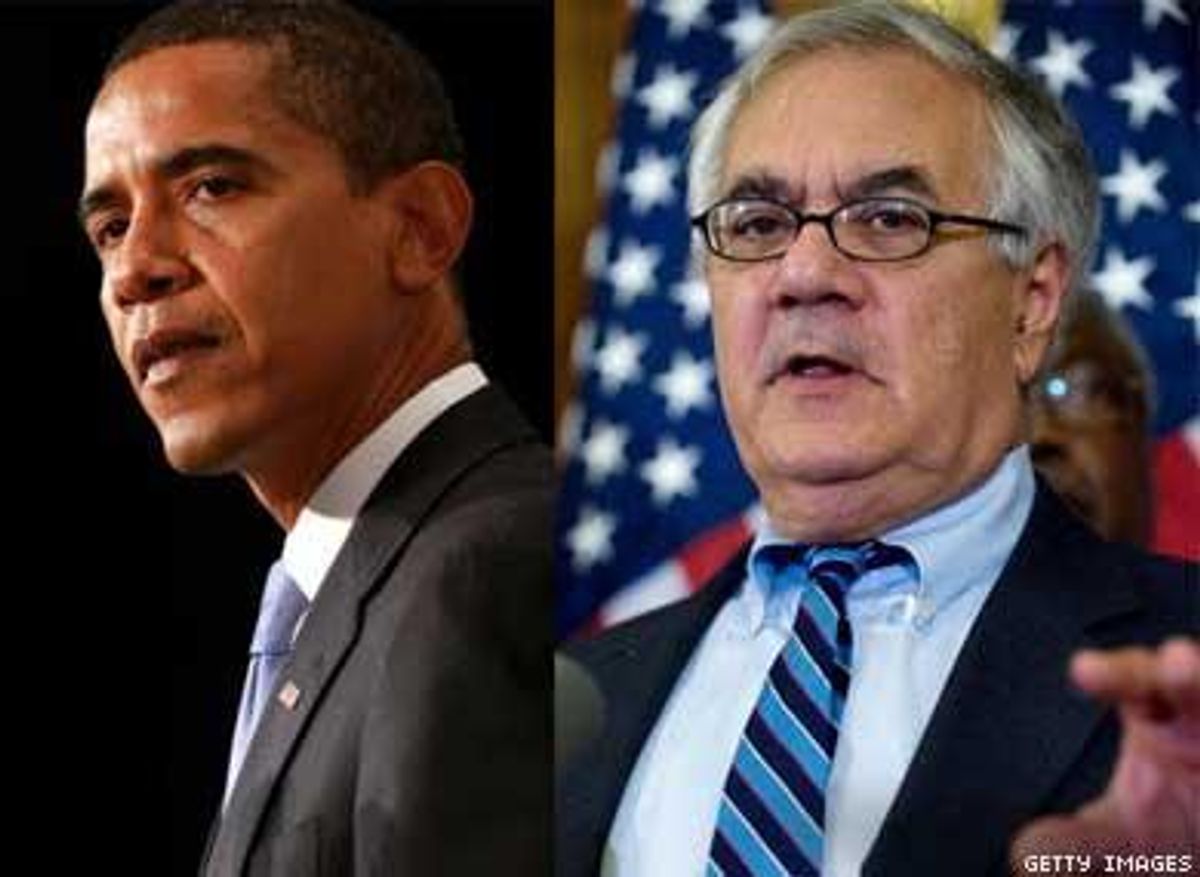The election of
Barack Obama as president of the United States marks the
end of an unlikely journey to transform the American
political scene. In just over four years, Obama went
from an unknown Senate candidate to a master of
oratory. Now he's the most powerful man in the world. Along
the way, he vanquished one of the most formidable
political giants of modern politics: Hillary Clinton.
It remains to be
seen what change under Barack Obama will really mean.
But with a margin of victory for a presidential candidate
not seen in decades and an expanded Democratic
majority in Congress, we can bet that some measure of
change is assured.
Prior to his
election the gay rights agenda risked becoming nothing more
than a wish list. While gains made on the state level are
meaningful and serve to build momentum, they will
ultimately be only tokens of equality without securing
a majority on the Supreme Court to uphold the promise of
the words written by Thomas Jefferson that "all men are
created equal." Obama's election greatly increases the
likelihood of that happening.
In the meantime,
it's come to the point where we must see action by
Congress toward meeting the goals of our movement for
equality. The Human Rights Campaign Fund began in 1980
with the purpose of lobbying Congress for this very
reason. Since then, no major piece of legislation has been
passed by both houses of Congress and signed by the
president. On the contrary, we have seen a ban on gays
in the military and the Defense of Marriage Act
passed. Our only successful defensive maneuver was to
prevent the passage of the Federal Marriage Amendment.
Given our record,
a change in strategy is warranted. The "stay the
course" crowd's response to this is usually a "let's wait
our turn" attitude. Our time at the back of the bus
must end. Now.
There are tens of
thousands of married couples. Our people serve at the
highest levels of government. LGBT money is a major source
of funding for politics and our economy. Corporate
America treats us more equally than the laws of our
country, as do our children. Thus we are reminded on a
daily basis that prejudice and discrimination are not
inherent -- they are taught and regularly used as
weapons of fear.
Throughout the
Democratic primary season, we saw major movement on the
positions taken by the candidates. Never before had
candidates supported so many pieces of legislation
that we desire to see become law: hate crimes, repeal
of the ban on gays in the military, the Employment
Non-Discrimination Act, repeal of DOMA, gay-friendly
immigration reform, and civil unions.
So now we find
ourselves fresh off an amazingly historic election, the
second in which Democrats made major gains in the Congress.
Surely, we are on the cusp of major progress. Well,
not so fast.
A recent meeting
of advocacy groups in Washington consisted of talking
about the same old tired proposals and in which order they
would be prioritized. Congresswoman Tammy Baldwin had
a list that was discussed. The same with congressman
Barney Frank.
It seems as if
the establishment of our movement missed the big idea of
this election: Change has arrived. So it's time we change
the ask -- both what we are asking for and how we ask.
From here, until
we are granted all of the same rights and privileges
that every other citizen of the United States enjoy, we will
not ask politely. We will insist.
Rather than ask
for a version of ENDA that is vastly watered down from
the version originally introduced by representatives Bella
Abzug and Ed Koch 30 years ago, we will honor their
leadership and ourselves by insisting that the Civil
Rights Act of 1964 be expanded to include sexual
orientation and gender identity. This will grant sweeping
protections enjoyed by other minorities in America,
in employment, credit, and housing, among other
fields.
Instead of
settling for one piece of legislation at a time, we will
insist that a larger agenda be addressed. It is an agenda
that is in the greatest tradition of our nation:
making people equal. We've done it for
African-Americans and women. It's time for this history to
catch up to our movement.
We are the only
major power in the world that does not recognize these
tenets of basic equality. We are also the only one of these
nations to have elected a black man president. If we
can do that, we can surely provide for civil equality
for all of our citizens.
If this ask is
not reasonable, I challenge our advocacy organizations to
explain why. After hundreds of millions of dollars spent in
the last 30 years, there is little progress to show in
the arena of equal rights. Conversely, there are far
more barriers than existed 30 years ago.
It's time that we
have an agenda that represents the time in which we
live. I am hopeful that our community will embrace such an
agenda and demand it from those who enjoy the largess
of our financial support: politicians, organizations,
and businesses.
Only when we see
progress can we believe what we are told. Only when we
see full equality can we rest.














































































